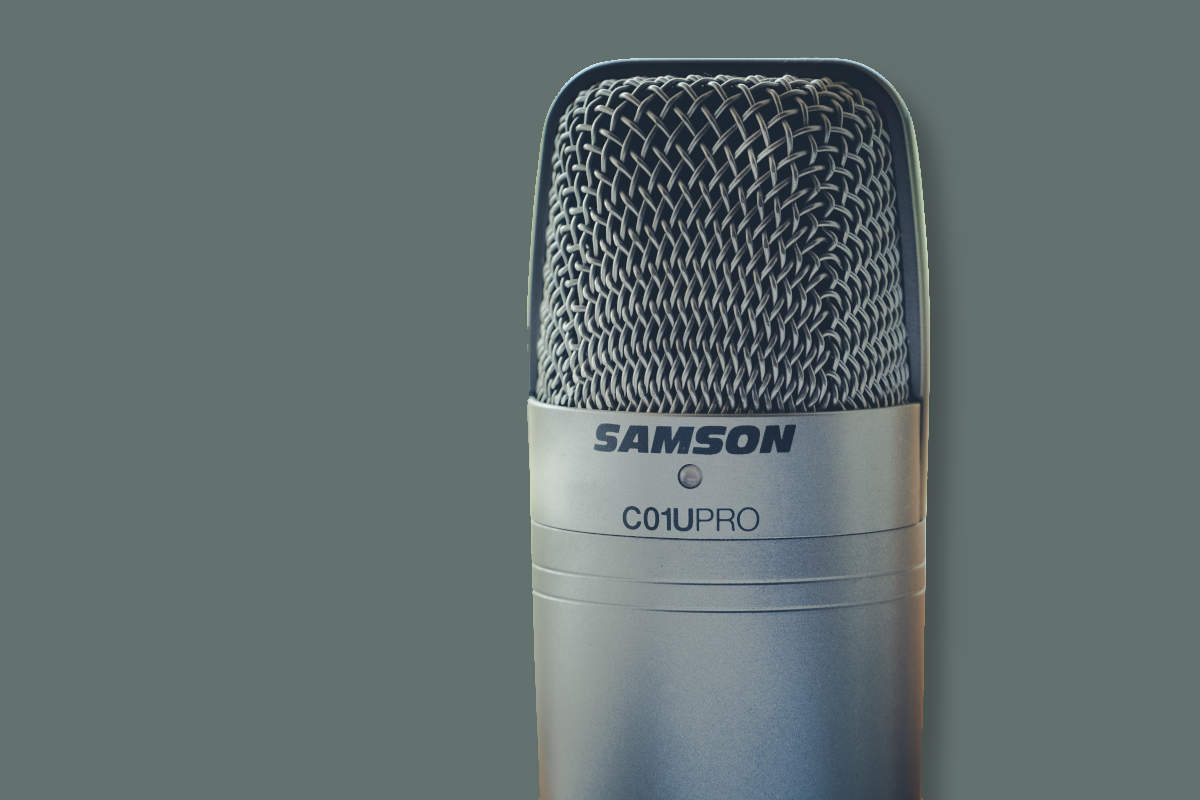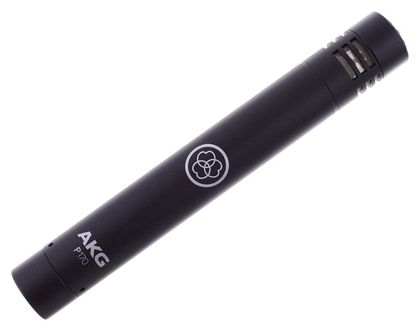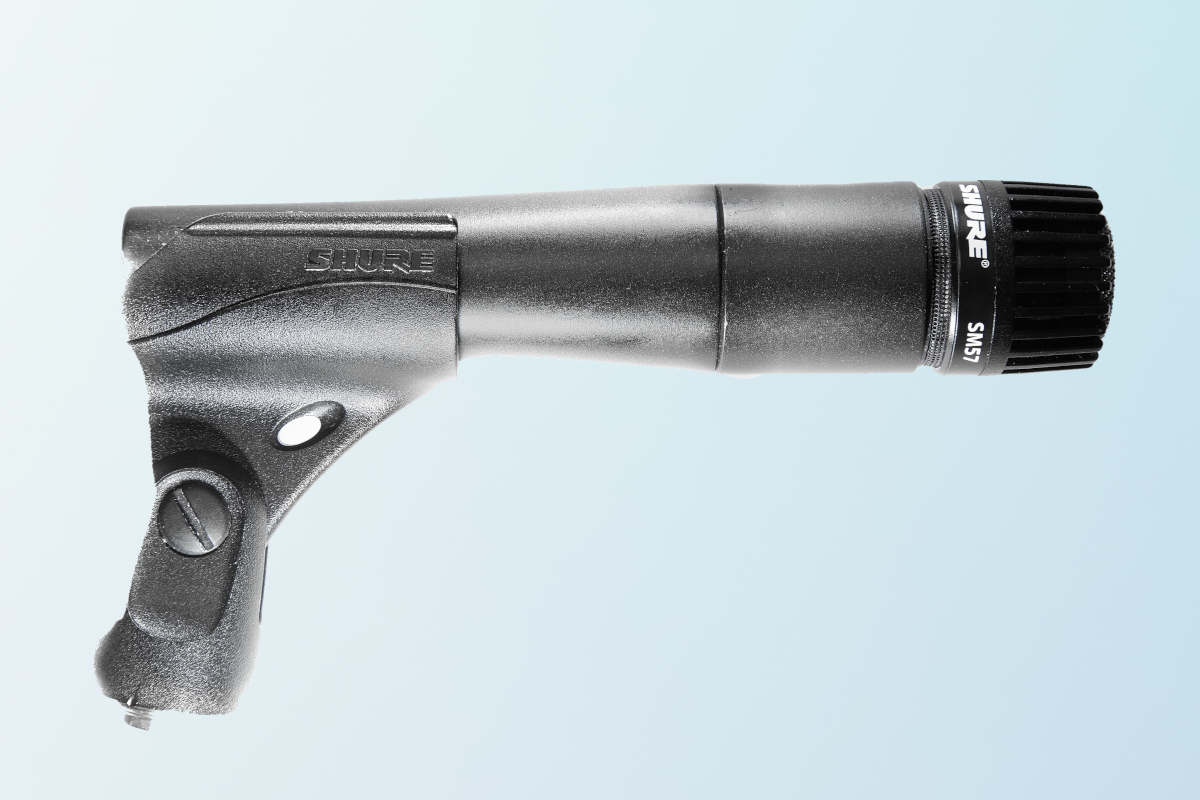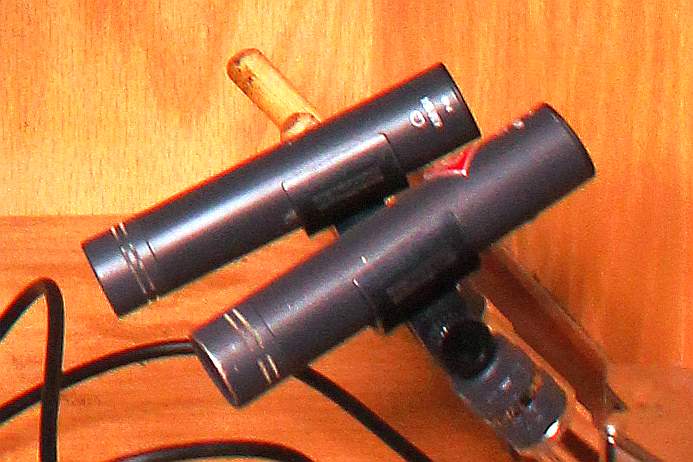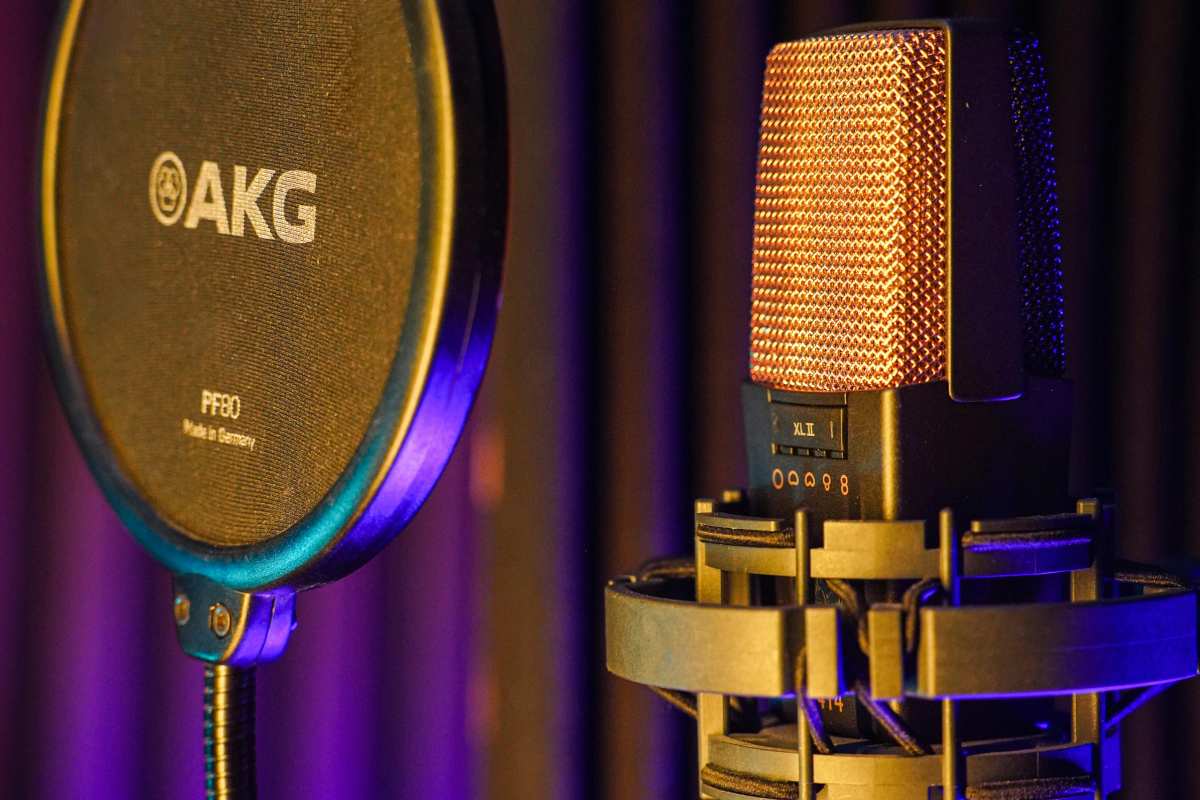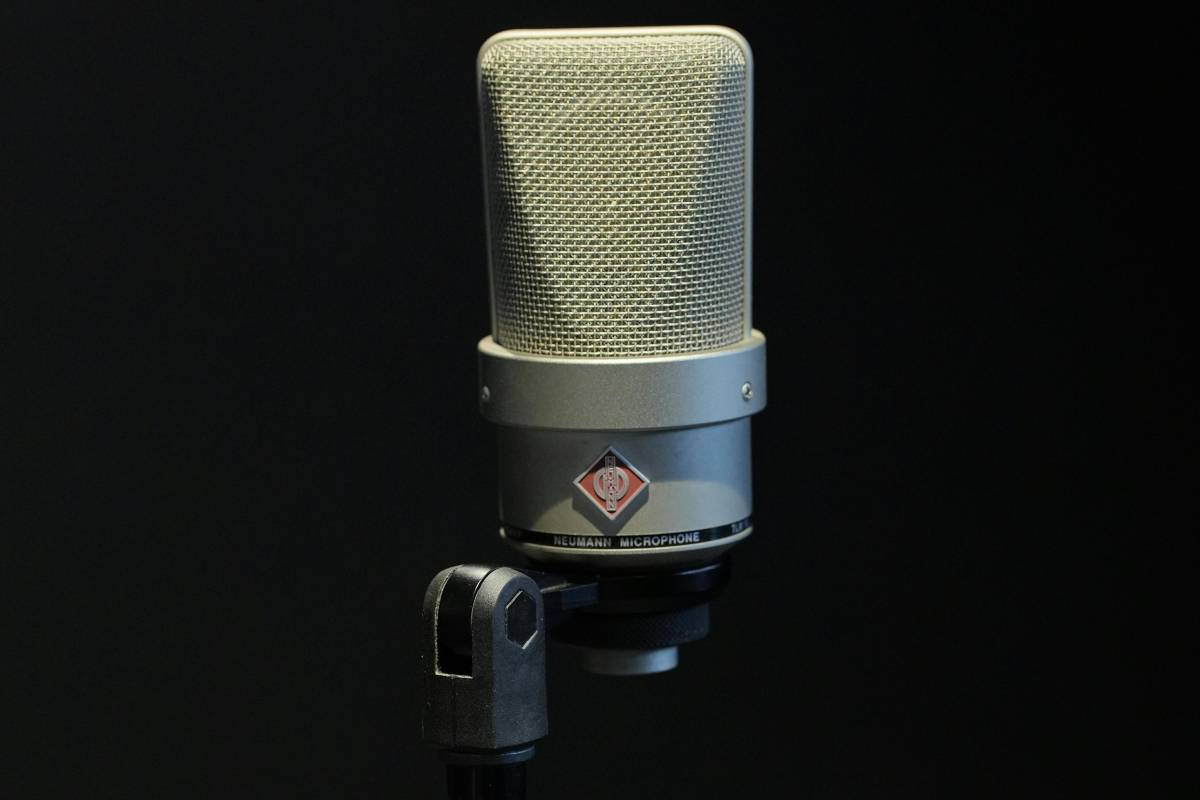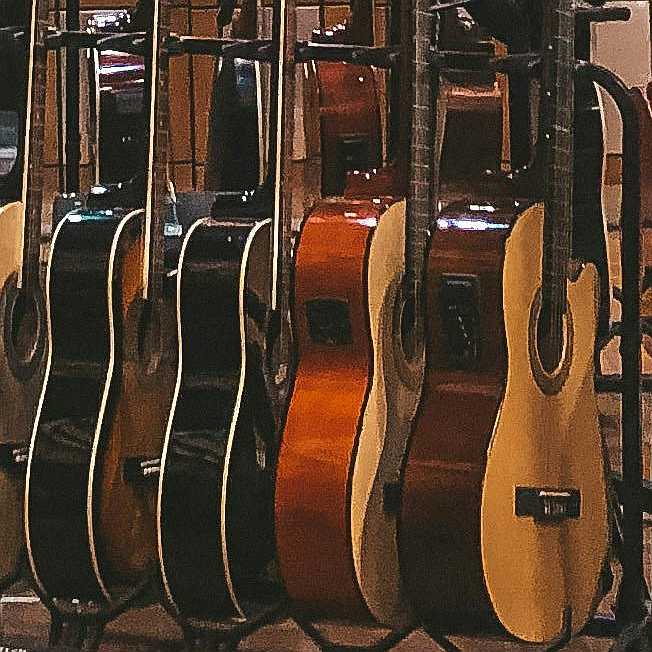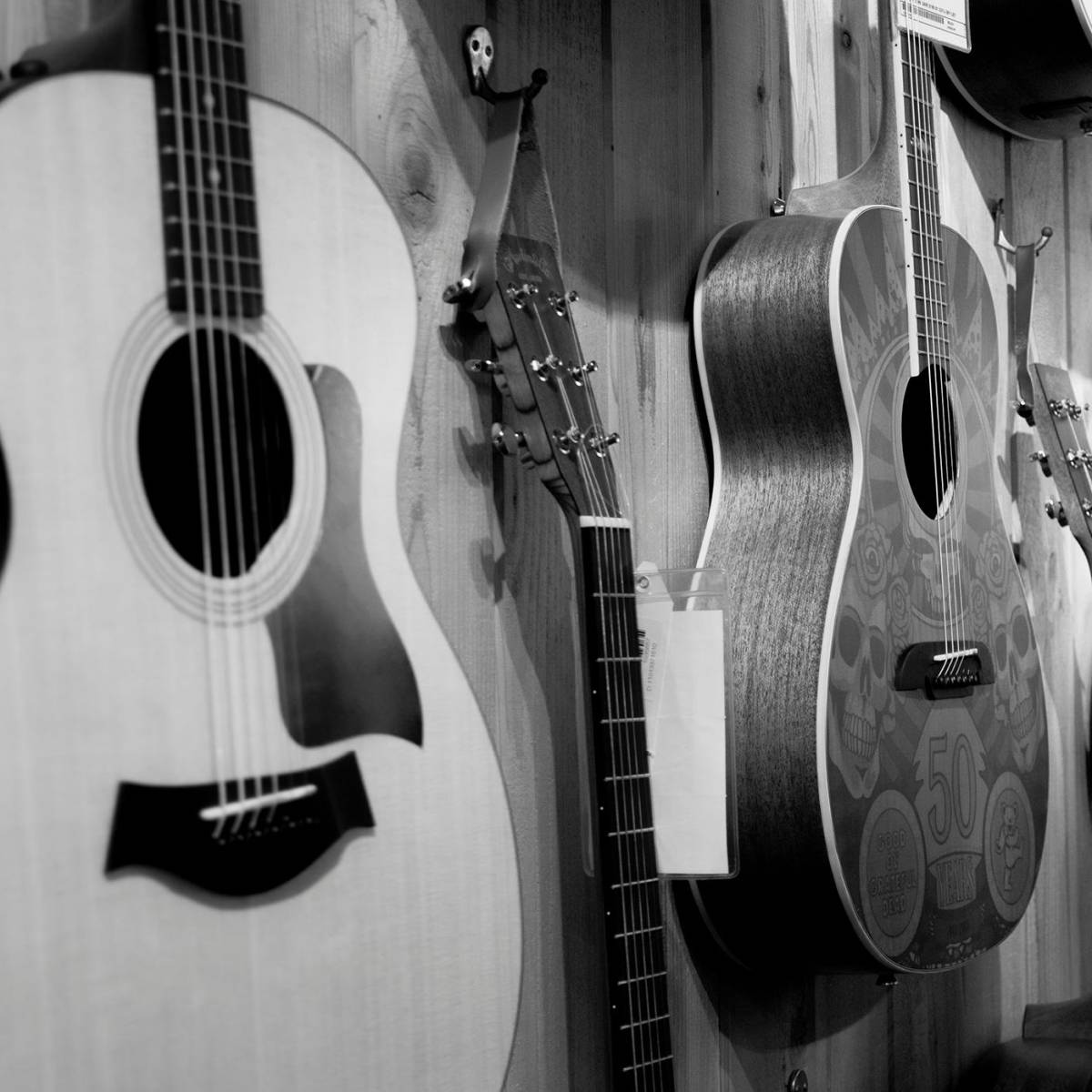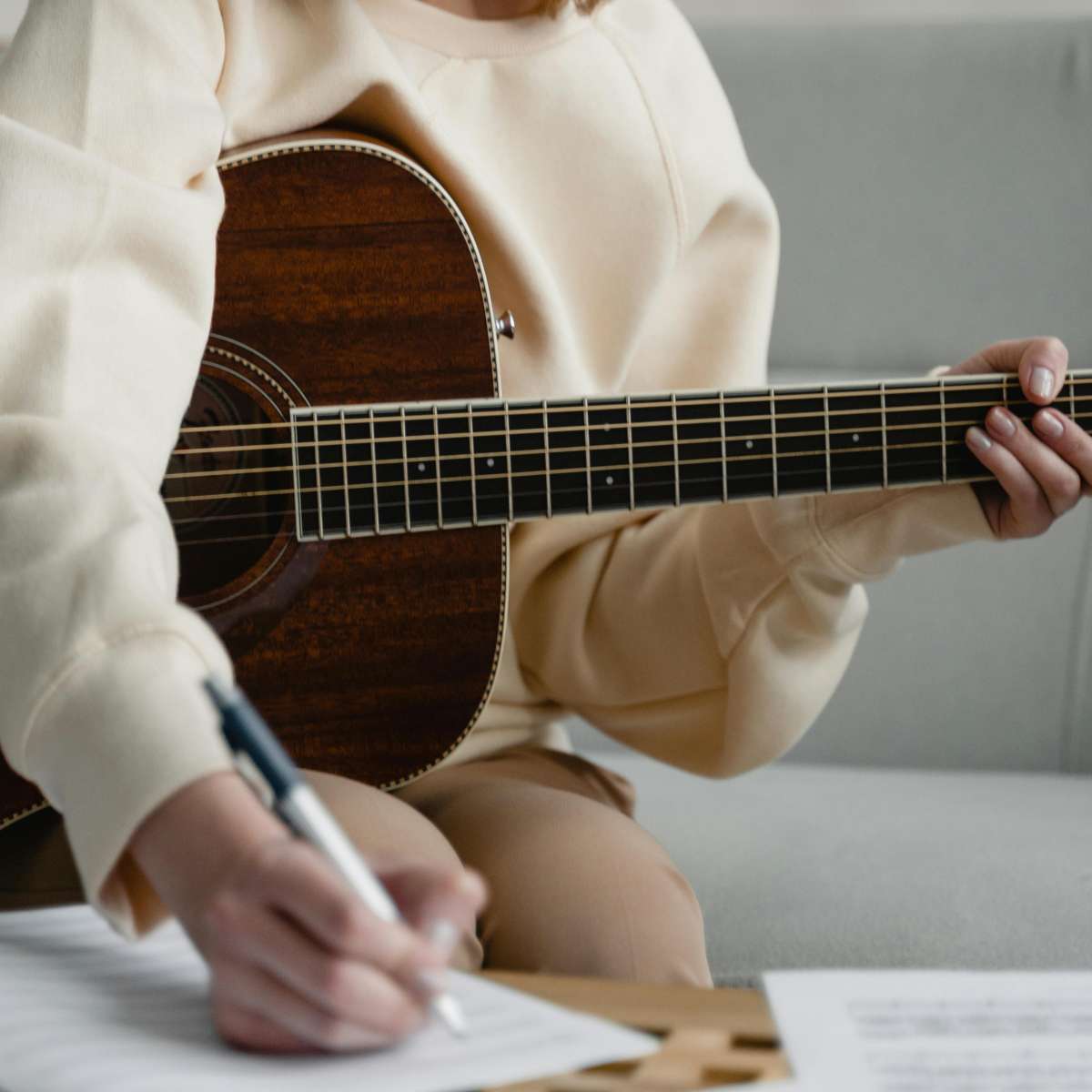Here's how to find the best microphone to record your acoustic fingerstyle guitar.
Want to record your fingerpicking, but you don't know which microphone best fits your budget?
Or perhaps you're not sure about the difference between dynamic and condenser microphones?
Well, here we're going to discuss both those points and more, in this ultimate guide to choosing the best microphone to record fingerstyle guitar.
This article contains affiliate links. When you purchase using an affiliate link, I may earn a small commission without any extra cost to you.
What’s The Best Microphone For Recording Fingerstyle Guitar?
Here are the 7 best mics for recording fingerstyle guitar, going from the lowest priced microphone for those on a budget to the top-tier professional option. I'll go into more detail further on when we explore the features of each microphone in more detail.
- Best budget condenser mic for home recording: Samson C01
- Best low-cost small diaphragm condenser mic: AKG P170
- Best overall dynamic microphone for acoustic fingerstyle: Shure SM57
- Best dynamic microphone for capturing detail: beyerdynamic M201
- Best small-diaphragm mic for acoustic guitar: Neumann KM 184
- Best multi-pattern condenser mic for fingerstyle: AKG C414
- Best high-end studio mic for rich acoustic tones: Neumann U87Ai
Before recording, you should make sure you have the relevant recording equipment, such as a stand, cables and console to plug into your computer. I don't mix sound much because I like to let the natural resonance come through.
Also, you can choose to buy two copies of any of these microphones if you decide to record in stereo. But, when recording solo fingerstyle guitar, it's not strictly necessary to have stereophonic sound for a great result.
Let's look at each of these microphones in more detail, starting with the budget option which is suprisingly good.
1. Samson C01
For a professional sound at a budget price, you can't go wrong with the Samson C01, a large diaphragm condenser microphone that holds its ground even when compared to the more expensive models.
You can place it directly in front of your guitar and record in mono, or buy two Samson C01s and use an AB setup to record in stereo. Careful of phase cancellation issues if you do this, however.
- Great value for price
- Versatile and works great for fingerstyle guitar
- USB version is slightly cheaper but less durable than the studio version.
You won't be able to plug this mic directly into your computer, however—for that, you'll need the C01U. However, I still recommend getting the professional (not the USB) version of the C01 that uses an XLR cable and requires phantom power.
2. AKG P170
If you're recording acoustic guitar and aiming for a brighter sound, a small diaphragm condenser microphone like the AKG P170 is a fantastic option.
Owing to the smaller size of the material which captures the sound, this mic is far more discreet and allows for greater precision when placing in front of your guitar.
- Ideal for stereo recording with two mics in a XY configuration.
- Bright, clear sound perfect for fingerstyle guitar and percussive techniques.
- Can be hard to adjust and slip from their clips owing to the slim shape.
Unlike the large diaphragm condenser option that we just saw, this small diaphragm condenser will give you a more accurate representation of the instrument. Use a pair of AKG P170s in a stereo XY or AB configuration for a realistic-sounding recording.
3. Shure SM57
OK, so you want to record your epic fingerstyle guitar song in one take without too much fiddling around beforehand?
The Shure SM57 makes recording fingerstyle guitar a piece of cake. This dynamic microphone has stood the test of time and become a go-to choice for home studios in both a profesional and amateur setting.
- Decent fidelity when placed close up.
- Durable and reliable with case and pouch included.
- Less effective for bass frequencies when placed far away.
This compact, rugged mic unfortunately loses low-end definition as you move it farther from your instrument, making it less ideal for ambient or room recording. But this likely shouldn't be an issue when capturing fingerstyle guitar.
4. beyerdynamic M201
Want a dynamic microphone for recording fingerstyle but you're not so sure about the Shure? In that case, the beyerdynamic M201 deserves your attention.
If you’re looking for a rugged microphone that will perfectly capture the characteristic attack of acoustic fingerstyle playing, the M201 delivers more clarity and articulation than other dynamic options like the Shure SM57.
- Exceptionally rugged and shock-resistant—great for travel or stage.
- Made in Germany with premium build quality.
- Less warmth and depth compared to condenser microphones.
Manufactured in southwest Germany, the M201 will surprise you with its durability and resistance to shocks. Unlike condenser microphones, which use a delicate conductive membrane that requires phantom power, dynamic microphones like the M201 use a more robust moving coil design.
However, the m201 lacks the low-end body and spacious depth that you'll find in a condenser mic. Consider using the m201 along with a large-diaphragm condenser microphone in a dual-mic setup.
5. Neumann KM 184
Also designed and manufactured in Germany, but this time near Hanover, the Neumann KM 184 is a premium small-diaphragm condenser microphone of much renown among professional engineers. With ultra-low self-noise, this mic is a top choice for acoustic guitar recording, especially when used as a pair in stereo configurations.
- Incredibly low noise (crank the gain as much as you like).
- Consistent cardioid pattern minimizes surprises like unwanted room noise.
- Relatively pricey for a small diaphragm condenser.
Neumann, now part of the Sennheiser Group, has been a pioneer in microphone design for nearly a century. Its founder, Georg Neumann, is credited with inventing phantom power, now standard for condenser microphones. His legacy of innovation lives on in models like the KM 184, which offers pristine sound quality, perfect for creating a professional-quality recording of your fingerstyle guitar playing.
6. AKG C414
Sometimes, you'll want to change the polar pattern of your microphone, especially if you record fingerstyle guitar in various locations. The AKG C414 XLS lets you do that, with five selectable polar patterns (omni, wide cardioid, cardioid, hypercardioid and figure 8). The vintage shape of this large-diaphragm condenser microphone is easily recognizeable, as the C414 has remained a trusted standard in recording studios around the world for decades.
This is the perfect microphone to pair with one of the dynamic mics we saw previously. Just make sure to aim the microphone correctly when recording: face the side with the logo and the polar patterns, otherwise, your recording will probably sound like crap.
- Large-diaphragm condenser with 5 switchable polar patterns.
- Vintage design and unmatched aesthetic (it looks really cool).
- Mic must always be pointed in the correct direction (unless you've selected omni).
While AKG’s factory was at one point located in Austria, current models are built in Hungary to the same high manufacturing standards, although some people have noticed a difference in the treble clarity of the Hungarian models. The modern iteration of this iconic mic is an excellent all-rounder for capturing fingerstyle guitar performances in rich detail.
7. Neumann U87Ai
Unlike single-diaphragm condensers that capture sound from one side only, the Neumann U87Ai is a legendary large-diaphragm condenser microphone with a double diaphragm design. The U87 offers multiple polar patterns (cardioid, omnidirectional, and figure-8) by combining signals from both diaphragms, allowing you to select the desired polar pattern with a much more discrete mechanism than the AKG C414.
- Double diaphragm with flexible multi-pattern recording.
- Warm and neutral tone and extremely flexible.
- Sky-high price means you could consider it an investment.
Manufactured in Wedemark, Germany, this flagship mic by Neumann has been a gold standard in professional recording studios for decades. Its ability to reproduce the nuances of acoustic fingerstyle guitar with pristine clarity, while remaining flexible enough to be placed anywhere near the instrument, makes it a no-brainer for those who want the best microphone for a professional result.
Whatever your final choice, you can't go wrong with any of the microphones in this list to record crisp, clear fingerstyle guitar. And to start learning fingerstyle guitar, I recommend following a curriculum such as Play Fingerstyle Guitar Now! where I show you a method which involves playing both melody and bass with the fingers.

